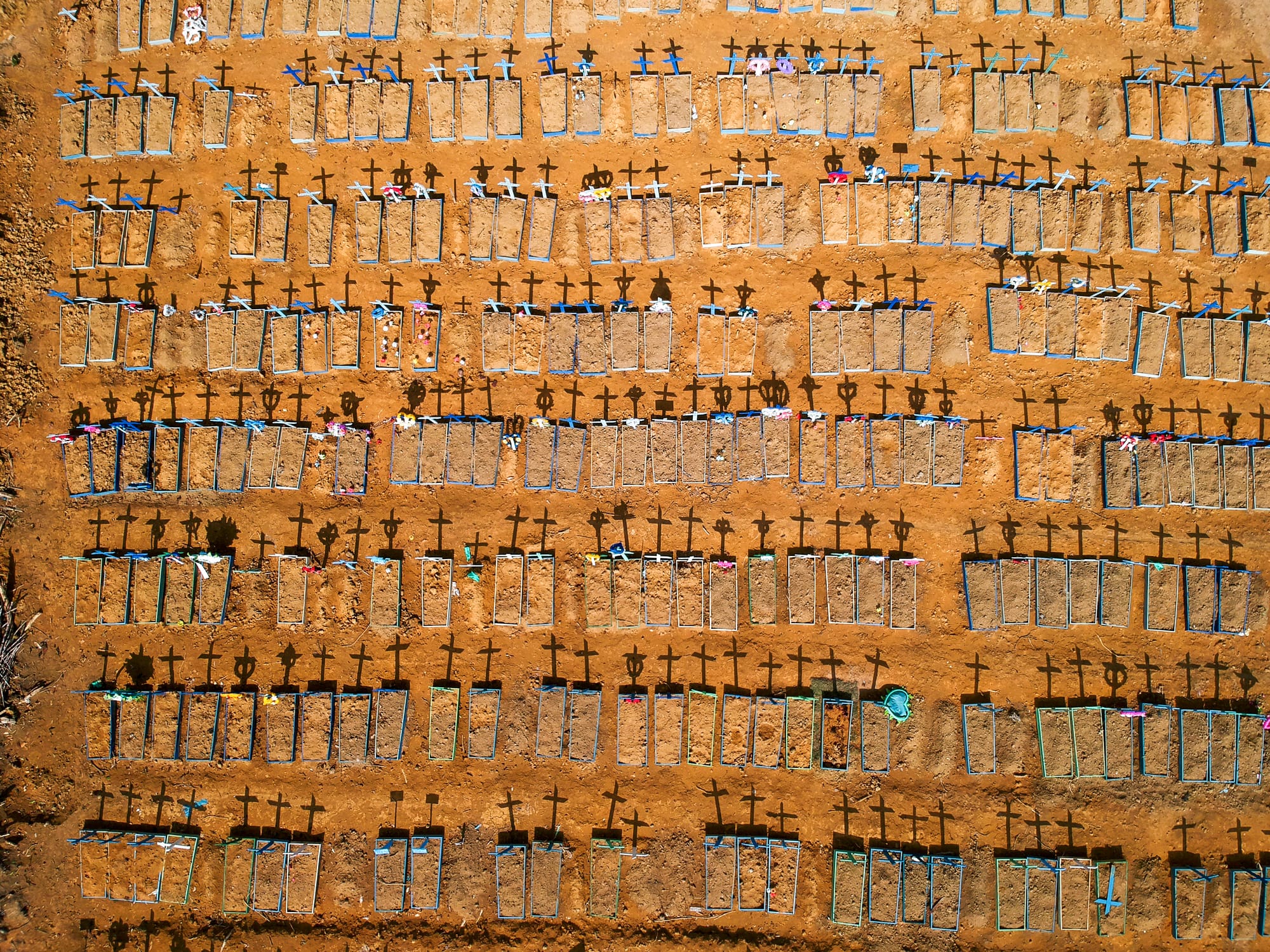What have we learned five years post-Covid?
Nick Dowson in Newcastle

Currents+ is included as part of all print and/or digital subscriptions to New Internationalist magazine. That's a £36 annual value!
The world has marked five years since the rapid spread of Covid-19 – a virus estimated to have killed at least 18 million worldwide, albeit more with an omertà-like pact of silence than the enforced pomp of military catastrophes.
On 11 March 2020 the World Health Organization declared a pandemic; as of April most of the world’s population was under lockdown; the highest international spike in deaths came in January 2021. The vaccine roll-out which started that year – initially restricted to rich countries – was crucial to recovery. But the impact of the virus and its mismanagement continue to be felt.
Has the world learnt its lessons? It seems not. Trump has pulled the US out of the WHO, while vaccine scepticism is preached from populist pulpits.
The virus hit hardest amongst the deprived and the vulnerable, but wealth gaps continue to widen, exacerbated by Covid-era policies like quantitative easing and the post-pandemic cost of living crisis. As the UK hit the five-year anniversary of its lockdown this March, the government proposed major cuts to disability benefits – vowing not to ‘write off’ the sick even as Long Covid clinics are shuttered around the country in the name of penny pinching.
The post-infection condition can cause numerous symptoms from extreme fatigue to heart palpitations, and has affected an estimated 400 million people worldwide, making the pandemic a mass disabling event. Meanwhile, the virus continues to circulate, with little investment in mitigation measures like ventilation and air purification.
Neoliberal policies have led to strained healthcare systems, threatening their resilience in future emergencies. There are lessons to be learnt from places like Kerala, India, that successfully limited coronavirus spread without stringent lockdowns – through a robust health service, contact tracing, and isolation support.
📰 We've published whole magazine issues on vaccine equality (2021) and lessons from the pandemic (2020); NI subscribers gain full access to our digital archive!
👉 For first-hand stories from those impacted by and organizing around Long Covid, check out this comic by Daniela Gilsanz, this essay by epidemiologist Victoria Colliver and the Still Here podcast by disabled-led outlet the Sick Times
✅ To learn more about Kerala's commendable response to the pandemic, read this political analysis from Novara and this BBC interview with former health minister KK Shailaja
✊There are many NGOs, research groups and grassroots organizations working to support and advocate for Long Covid sufferers, such as Long Covid Justice, the Patient-Led Research Collaborative, and the Longhauler Advocacy Project
Read the latest issue of New Internationalist
Like what you've read? Support us with a tip
Looking for more? Listen to our podcast The World Unspun
Shop ethical goods at our very own Ethical Shop

